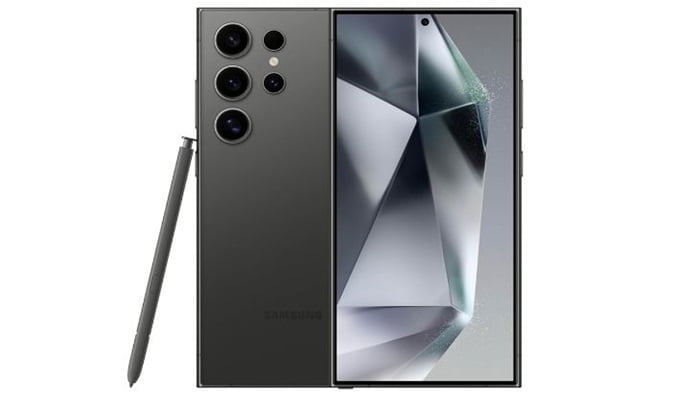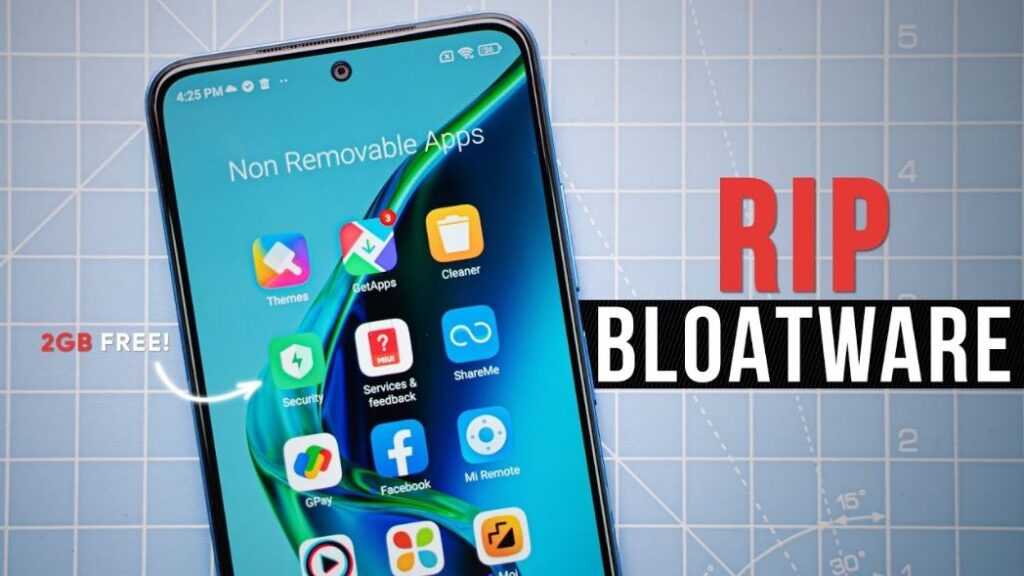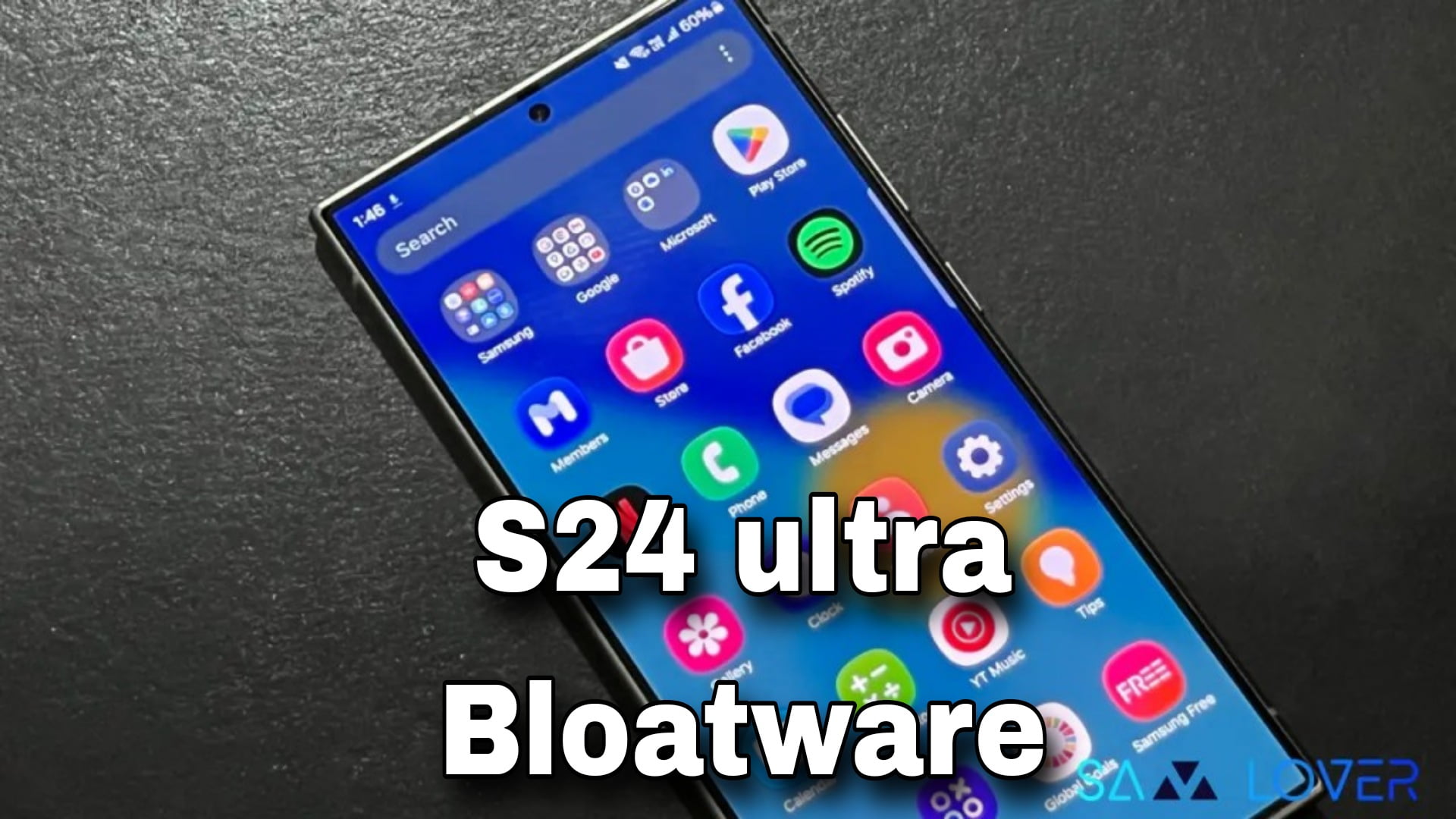We will learn here how to delete bloatware from the Samsung S24 Ultra. What is bloatware? What does the work do? What are its side effects? And how many benefits are there?
What is the Bloatware Samsung S24 Ultra?
“Bloatware” is often used to describe pre-installed software on electronic devices that may not be required for the device’s fundamental functionality. Bloatware on the Samsung Galaxy S24 Ultra or any Samsung smartphone may include apps or software pre-installed by Samsung or the carrier. These apps could contain supplementary productivity tools, games, or apps for services that the user may not need or want.
It’s worth mentioning that what defines bloatware varies according to personal preferences. What one person considers bloatware, another may find useful. However, for those who want a more simplified experience or wish to free up storage space, the ability to delete or disable pre-installed apps can be useful. Many Android devices, including Samsung phones, allow users to disable or uninstall pre-installed apps to personalize their device experience.
How to Remove Bloatware Samsung S24 Ultra:
Bloatware might be difficult to remove from your Samsung Galaxy S24 Ultra since some pre-installed apps may be firmly entrenched in the operating system. However, you may disable many of them to keep them from running and eating up space. Here’s how to disable bloatware:
Go to settings:
Launch the Settings app on your Samsung Galaxy S24 Ultra.
Navigate to Apps.
Scroll down and choose “Apps” or “Applications” from the Settings menu.
Find the bloatware:
Look for the pre-installed programs you want to disable. These are typically referred to as “Samsung Apps” or “System Apps.”

Disable the application:
Tap on the app you wish to disable, then select the “Disable” button. This stops the program from functioning and frees up some space on your smartphone.
Repeat as necessary.
Repeat the process for each bloatware program you want to disable.
Keep in mind that disabling certain system apps may interfere with your device’s performance or cause other apps to misbehave. So, before disabling an app, make sure it won’t cause any problems. If you are unsure about an app, leave it alone.
Delete: bloatware Samsung S24 Ultra:
Bloatware might be difficult to remove from your Samsung Galaxy S24 Ultra since some pre-installed apps may be firmly entrenched in the operating system. However, you may disable many of them to keep them from running and eating up space. Here’s how to disable bloatware:
Go to settings:
Launch the Settings app on your Samsung Galaxy S24 Ultra.
Navigate to Apps.
Scroll down and choose “Apps” or “Applications” from the Settings menu.
Find the bloatware:
Look for the pre-installed programs you want to disable. These are typically referred to as “Samsung Apps” or “System Apps.”
Disable the application.
Tap on the app you wish to disable, then select the “Disable” button. This stops the program from functioning and frees up some space on your smartphone.
Repeat as necessary.
Repeat the process for each bloatware program you want to disable.
Keep in mind that disabling certain system apps may interfere with your device’s performance or cause other apps to misbehave. So, before disabling an app, make sure it won’t cause any problems. If you are unsure about an app, leave it alone.
If you want to buy a shining case for your smartphone:
The Top 5 Best Samsung S24 Ultra Cases – 2024

Benefits: Bloatware Samsung S24 Ultra
Bloatware, also known as pre-installed or bundled software that comes with a device, can provide a variety of purposes and benefits, even if customers believe it is unnecessary or unwanted. Here are some possible advantages of bloatware Samsung Galaxy S24 Ultra:
Enhanced functionality:
Some pre-installed apps add features or capabilities that complement the device’s hardware and software ecosystems. Samsung’s own apps, such as Samsung Health, Samsung Notes, or Samsung Pay, may provide unique features that users find useful.
Ecosystem Integration:
Bloatware apps may be designed to work smoothly with the device’s other natural features or services. For example, programs such as Samsung Cloud may make it easier to backup and synchronize data across Samsung devices.
Manufacturing Partnerships:
Device manufacturers frequently pre-install apps from partner firms or third-party developers. These relationships may give users access to special material, services, or discounts. For example, a Samsung device may have pre-installed apps from music streaming services, video streaming platforms, or productivity suites.

Support and maintenance: (bloatware Samsung s24 Ultra)
Some pre-installed applications may be required for system maintenance, security, or troubleshooting purposes. These programs could assist in diagnosing problems, updating firmware, and performing necessary system improvements.
Monetization and Revenue Generation:
Pre-installed apps could generate cash for device manufacturers. These apps may contain promotional content, advertisements, or premium features that earn revenue from in-app purchases or subscriptions.
Customization and personalization:
Bloatware apps may include customization choices or personalization tools, allowing users to adapt their device experience to their preferences. For example, Samsung’s customization tools, such as Themes and Good Lock, allow users to customize the look and feel of their smartphone.
While bloatware can be beneficial, it’s fair that consumers may wish to remove or disable specific programs to clean their devices or improve speed. However, deleting or deactivating pre-installed programs must be carefully considered because it may damage the device’s functioning, stability, or security.
How to turn on visual voicemail Samsung s24 ultra | Best |
Side Effects: Bloatware Samsung S24 Ultra:
While bloatware on the Samsung Galaxy S24 Ultra may offer certain benefits, customers may encounter the following potential side effects:
Reduced Storage Space:
Pre-installed apps suck up storage space on the device, reducing the amount of space available for user-installed apps, media, and other information. This can be especially problematic if the gadget has little internal storage space.
Performance degradation:
Some pre-installed apps may run in the background or begin automatically with the device, wasting system resources like CPU, RAM, and battery life. This can result in poorer performance, slower response times, and shorter battery life, particularly for devices with lower hardware specs.
Increased battery consumption:
Certain bloatware programs may continuously execute background operations or sync data, quickly draining the device’s battery. This can lead to reduced battery life and more frequent recharging cycles, which affects the device’s overall usability and convenience.
Security Risks:
Pre-installed programs, particularly those from third-party developers or unknown sources, might introduce security threats like vulnerabilities, privacy breaches, or malware infestations.
These apps may collect sensitive user information, display invasive advertisements, or jeopardize the device’s security posture.
User Experience Issues:
Bloatware apps can clog the device’s app drawer, home screen, or notification panel, making it difficult for users to find and utilize the apps they require. This might result in a cluttered and confused user experience, which reduces the device’s overall usability and happiness.
Update Delays:
Device manufacturers and carriers frequently package their own apps with the device, which can cause delays in software upgrades and security patches. This can expose the device to known security vulnerabilities or prevent it from receiving new features and improvements provided in recent software updates.
incompatibility and unwanted features:
Some users may find that certain pre-installed apps are superfluous, irrelevant, or incompatible with their usage patterns or preferences. These apps may clog the device’s interface, use system resources, or disrupt the user’s intended workflow, resulting in annoyance and discontent.
While bloatware has some negatives, consumers can lessen its impact by deleting or removing superfluous apps, using third-party tools or custom ROMs to eliminate bloatware, or purchasing devices with minimum pre-installed software. However, before making any changes to the device’s software setup, the potential benefits and negatives must be carefully considered.
Youtube Video:
Summary: : Bloatware Samsung S24 Ultra
Title: Exploring Bloatware: Definition, Impact, and Management Strategy
Introduction:
- Bloatware, a phrase coined to characterize pre-installed software on electronic devices, is now a prevalent feature of modern technology. This brief delves into the concept of bloatware, how it affects users and devices, and effective management solutions.
Description and characteristics of bloatware: Bloatware refers to software applications that come pre-installed on electronic devices, most notably smartphones and PCs. These applications are often included by manufacturers or carriers and serve a variety of goals, including feature enhancement, partnership promotion, and income generation. Bloatware can refer to a variety of software, including system utilities, manufacturer-specific tools, third-party applications, and promotional content. - The impact of bloatware on users and devices: Despite its possible benefits, bloatware can have a negative impact on both users and devices. For starters, bloatware takes up storage space on the device, reducing the available capacity for user-installed apps, media, and other material. This is especially problematic on devices with limited internal storage, resulting in storage shortages and performance degradation. Bloatware can also run background programs or start automatically with the device, using system resources including CPU, RAM, and battery power. This can lead to diminished performance, slower response times, and shorter battery life, all of which have an impact on the device’s overall functionality and convenience. Furthermore, bloatware apps may pose security threats, including vulnerabilities, privacy breaches, or malware infections, putting user data and device security at risk.
Strategies to Manage Bloatware:
To reduce the impact of bloatware, users can use a variety of management tactics. First, users can use the device settings to discover and disable unneeded pre-installed programs, freeing up storage space and lowering resource use. Users can also utilize third-party programs or custom ROMs to delete or disable bloatware, but proceed with caution to avoid unintended repercussions. Another method is to choose devices with minimum pre-installed software, such as Google Pixel smartphones running plain Android or devices from OEMs recognized for lightweight software skins. Furthermore, users can use app management tools to monitor and limit the behavior of installed apps, preventing bloatware from running indefinitely or accessing important data.
Finally, users may stay up-to-date on the latest software updates and security patches, ensuring their devices are protected from known vulnerabilities and attacks.
Conclusion:
Bloatware is a common feature of modern technology, with advantages and disadvantages for both users and devices. While bloatware can improve functionality, foster partnerships, and earn cash, it can also take up storage space, reduce performance, and pose security threats. Users can reduce the impact of bloatware and improve their device experience by using efficient management tactics like removing superfluous apps, deleting bloatware, choosing devices with little pre-installed software, and remaining informed about software updates.
